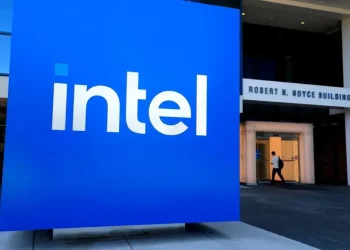Published: October 17, 2025, 22:45 EDT
As Windows 10 reaches its official end of life, Microsoft’s shift to Windows 11 has left many PC users facing tough upgrade decisions. Systems powered by Intel’s 7th-generation Core processors and older, as well as early AMD Ryzen models, can no longer receive updates — raising concerns about long-term security and performance.
Windows 10 Reaches End of Life
Microsoft officially ended mainstream support for Windows 10, marking a major transition for hundreds of millions of devices worldwide. Without regular updates or security patches, any PC still running Windows 10 is now vulnerable to security threats and software incompatibilities.
While short-term protection can be maintained with strong antivirus and anti-malware programs, experts warn that relying on outdated operating systems increases the risk of cyberattacks, malware infections, and performance issues over time.
Windows 11’s Stricter Hardware Requirements
When Microsoft launched Windows 11, it introduced tougher hardware requirements than any previous version of the operating system. These were designed to improve system security and overall stability.
The most notable requirements include:
-
TPM 2.0 (Trusted Platform Module) support for enhanced encryption
-
Secure Boot compatibility for verified system startup
-
Modern processor architecture with built-in hardware mitigations against exploits
However, these changes have effectively excluded millions of older computers — particularly those using CPUs released before 2018.
Intel’s 7th-Generation Processors No Longer Eligible
According to Microsoft’s compatibility list, Windows 11 officially supports only Intel’s 8th-generation Core series (and newer). This includes all i3, i5, i7, and i9 chips released from 2017 onward, as well as newer Xeon and Core Ultra processors.
That means most systems using Intel’s 6th- or 7th-generation chips — such as the popular Core i5-7600K or i7-7700K — are not eligible for Windows 11 updates. The only exception is the Core i7-7820HQ, found in select laptops that shipped with updated driver frameworks.
The decision stems from the fact that earlier processors lack key architectural features necessary for Windows 11’s security goals, such as advanced virtualization and hardware-based isolation.
AMD Ryzen 1000 Series Also Left Behind
The situation is similar for AMD users. Microsoft’s baseline support begins with the Ryzen 2000 series and newer. This excludes the first-generation Ryzen 1000 lineup, along with older FX and A-series CPUs.
Some early Ryzen Mobile processors also fall outside official support, meaning many laptops built before mid-2018 cannot run Windows 11 without workarounds.
For buyers considering secondhand or refurbished PCs, checking the processor model is essential. Systems built before 2018 are unlikely to qualify for official updates, no matter how powerful they may seem in benchmarks.
Manual Installation: A Risky Workaround
Although it is technically possible to install Windows 11 on unsupported systems, Microsoft discourages the practice. Users who bypass hardware checks through manual installation or registry edits can run the operating system, but they forfeit access to official updates and security patches.
That approach leaves devices more vulnerable to cyber threats and system instability. Microsoft has also warned that future updates may block unsupported installations entirely.
Experts advise against investing in machines that require such workarounds, especially for business or long-term use.
Security and Longevity Over Raw Performance
The main reason for Microsoft’s stricter requirements lies in security modernization. Windows 11’s foundation depends on trusted hardware components like TPM 2.0 and Secure Boot to protect user data and prevent firmware-level attacks.
Older chips lack hardware-based safeguards such as memory integrity enforcement and virtualization-based security, which are now standard in modern CPUs.
By phasing out older hardware, Microsoft aims to ensure that Windows systems are not only faster but inherently more secure and resilient against sophisticated cyberattacks.
What Consumers Should Do Next
For users still running older systems, there are several options:
-
Upgrade the hardware: Purchasing a PC with at least an 8th-generation Intel Core or Ryzen 2000 series processor ensures long-term support.
-
Stay on Windows 10 temporarily: Continue using Windows 10 with reliable antivirus protection, but understand that updates will no longer arrive.
-
Consider alternatives: Lightweight Linux distributions can extend the lifespan of older PCs while maintaining basic security and compatibility.
Retailers and tech experts caution consumers to double-check processor models before buying used or refurbished computers. Microsoft maintains a full list of supported processors on its website, which buyers can consult before making any purchase decisions.
The Future of PC Compatibility
As Microsoft continues to focus on hardware-backed security, the gap between old and new systems will likely widen. The company has signaled that future versions of Windows will depend even more on AI-enabled processors, onboard neural processing units (NPUs), and other advanced silicon features.
For users still running pre-2018 hardware, this means that Windows 11 — and its successors — may remain out of reach unless significant upgrades are made.
While the transition may be inconvenient, experts argue that it represents a necessary evolution in cybersecurity and reliability. Modern systems, they note, are not just about faster performance but about defending against an increasingly complex digital threat landscape.
This article was rewritten by JournosNews.com based on verified reporting from trusted sources. The content has been independently reviewed, fact-checked, and edited for accuracy, neutrality, tone, and global readability in accordance with Google News and AdSense standards.
All opinions, quotes, or statements from contributors, experts, or sourced organizations do not necessarily reflect the views of JournosNews.com. JournosNews.com maintains full editorial independence from any external funders, sponsors, or organizations.
Stay informed with JournosNews.com — your trusted source for verified global reporting and in-depth analysis. Follow us on Google News, BlueSky, and X for real-time updates.














